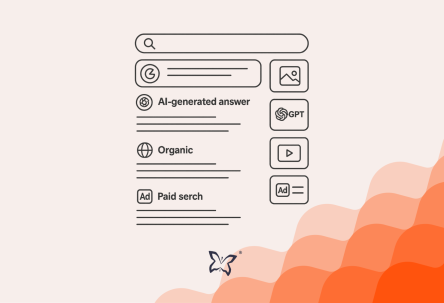We’re taking our meetings online.
We are using a range of online video options so please get in touch to have a chat.

Need expert advice?
Why not give us a call and see how we can help you with your project?
01460 984284We are using a range of online video options so please get in touch to have a chat.

Why not give us a call and see how we can help you with your project?
01460 984284Jargon-free, experience-backed insights to guide your digital decisions.

Dan Drummond

Google’s at it again, changing its benchmarks, algorithms – you name it. And while it can be frustrating for you as a business owner, there’s one thing you can do to keep yourself in Google’s good books.
Write quality content.
But not just any content. I’m talking about content that will get your website ranking on page one.
How do you improve your ranking with your content?
I’m going to take you through these steps to help you write high-ranking content Google will love. Let’s get started!
True or false?
The more content I upload on my site, the more attention I’ll get from Google.
The answer?
False.
Search engines track quality, not quantity. So if there’s one thing you need to avoid, it's bombarding your site with content.
But wait! I read that the more I refresh and update content on my site, the more search engines will take notice.
That is true. They will take notice. But get this. If the content doesn’t meet the mark, it won't rank. I’ve seen far too many sites write hordes of content because they think that’s what Google is looking for. But is every single one of those articles relevant? Are they all meeting the standard Google is looking for? More importantly, do they give value to your audience?
Overloading your site with information that isn’t useful to your readers and doesn’t meet Google’s requirements will knock you down in rankings. To avoid that, write with purpose.
Be relevant. Ask yourself: Is what I’m writing up-to-date with my target audience’s needs? Does it address their pain points and give actionable steps to rectify them? Or is it just something I’m interested in?
Have a goal in mind. What do you want to give to your readers? Is your goal to build trust? Convert? Give advice? Knowing your goal before you start writing will ensure your content has a purpose.
Structure your content. Is the layout of your content easy on the eye? Is it broken up into bite-sized paragraphs and bullet points? Does it have more white space than text? The cleaner and simpler your content the easier it is for readers and search engines to read it.
Now here’s something ChatGPT can’t do.
Write for real people with distinguishable thoughts, feelings, and motivations.
Great content begins with knowing your audience, and only you know them well. When you write content that appeals to them, your click-through rates and conversions will increase.
Google’s all about giving the people what they want, and if your content is grabbing people’s attention, Google will notice. To get this right, there are 3 main points to follow when writing content for your website.
1 | Know your audience
Killer content always begins with helping your audience overcome a problem. And if you know your audience, you’ll know what problems they need solving. That’s the perfect topic for you to write about.
For example, let’s say your target audience struggles to find affordable car rentals for their family holiday. They want something economical, big enough for the family, and, well, cheap. This information is knowledge. And knowledge is POWER. It helps you search for the right keywords and create captivating headlines. AND it provides you with the information you need to write valuable content.
Now you can write about The Only Way To Find Affordable Car Rentals For Your Family Getaway.

2 | Grab their attention
From the first point of contact your audience has with you, you need to grab their attention. Here’s why:
From a single search, “8/10 people will read your headline but only 2/10 will click through.”
So from the very beginning – that is when you show up in their search results – you need to grab their attention. To create an attractive, clickable page title:
This is also the case for your meta descriptions. They help you stimulate further interest and give more of an incentive for users to head to your site.
3 | Keep your audience engaged
You may have succeeded in getting readers on your page. Now the key is getting them to stay. Remember, it’s a journey, and the essence of good content is to make that journey interesting and worthwhile. And worthwhile content = valuable content. Share valuable information, such as tips, ideas, and advice. Don’t sell your knowledge and expertise – share it. That way, you build authority and trust, navigating your audience to their final destination.
morphtip! Google focuses on ranking quality content that includes their E.E.A.T benchmark.
Infuse these into all of your content, and not only will you make your audience happy, but you’ll score wins with Google.
Happy user = happy Google

The key to ranking on Google is SEO. If you can organically grow your rankings, you’ll save money and draw in more traffic to your site. To do that, you’ll need to understand how on-page SEO works and how to make the needed changes.
Once you’ve got writing for a purpose and for real people down, you're well on the way to increasing your ranking. But to get yourself – and keep yourself – ranking high, on-page SEO is key. To ace this, you’ll need to be familiar with all the on-page SEO elements, such as:

And breathe!
Not feeling confident with some of these elements? It’s important to get comfortable with on-page SEO so you can rank organically on search engines and roll with the ever-changing algorithms.
But don’t worry if you’re not there yet! We have an SEO course that can help with that.
Here’s what you need to do:
The truth is, keeping up with Google is a never-ending story. Staying up-to-date and focusing on how to improve your content will help, but there’s strength in numbers!

Head of Digital Strategy
Dan leads our digital marketing team at morphsites. With a sharp eye on SEO, paid search, and ROI tracking, he’s always looking for ways to help businesses make smarter use of their marketing spend...and keep pace with a fast-changing digital landscape.
 PPC Frustrations Part 1 - Why Google Ads often fail before the first ad even runs
PPC Frustrations Part 1 - Why Google Ads often fail before the first ad even runs
 PPC Frustrations Part 2 - Why do Google Ads get clicks but still fail to convert?
PPC Frustrations Part 2 - Why do Google Ads get clicks but still fail to convert?
 PPC Frustrations Part 3 - Why don’t Google Ads leads turn into customers?
PPC Frustrations Part 3 - Why don’t Google Ads leads turn into customers?
 The hidden cost of indecision
The hidden cost of indecision
 Finding the extraordinary in the ordinary
Finding the extraordinary in the ordinary
 Before you build, find out if you should
Before you build, find out if you should
 Are you solving the right problem?
Are you solving the right problem?
 More signal, less noise
More signal, less noise
 Do you still need an agency in 2025 or can AI do it all?
Do you still need an agency in 2025 or can AI do it all?
 Is AI changing how we should plan websites and marketing strategies?
Is AI changing how we should plan websites and marketing strategies?
 Planning a Website or Digital Project? Here’s What to Do First.
Planning a Website or Digital Project? Here’s What to Do First.
 Can AI replace your development team?
Can AI replace your development team?
 Why one client spent 10x more on a custom website and never looked back
Why one client spent 10x more on a custom website and never looked back
Not sure where to start with your digital project?
We’ve guided businesses through complex builds, integrations, and marketing strategies. Let’s have a conversation about how we can support your goals.


AI has changed how people search...and how your website needs to respond. This article explores why discovery, clearer content, and strategic paid search are becoming essential in a world of AI-generated answers.

By Dan Drummond

Before investing in a new website or digital marketing, make sure you’re building the right thing. This article explains the value of strategy, UX, and technical planning through the lens of a well-known brand that skipped discovery and paid the price.

By Pete Fairburn
Need expert advice?
Let’s talk results
© 2026 morphsites Ltd. All rights reserved E&OE. Registered in England no. 07116238. The ‘morphsites’ wordmark and butterfly device are registered trademarks of morphsites Ltd.